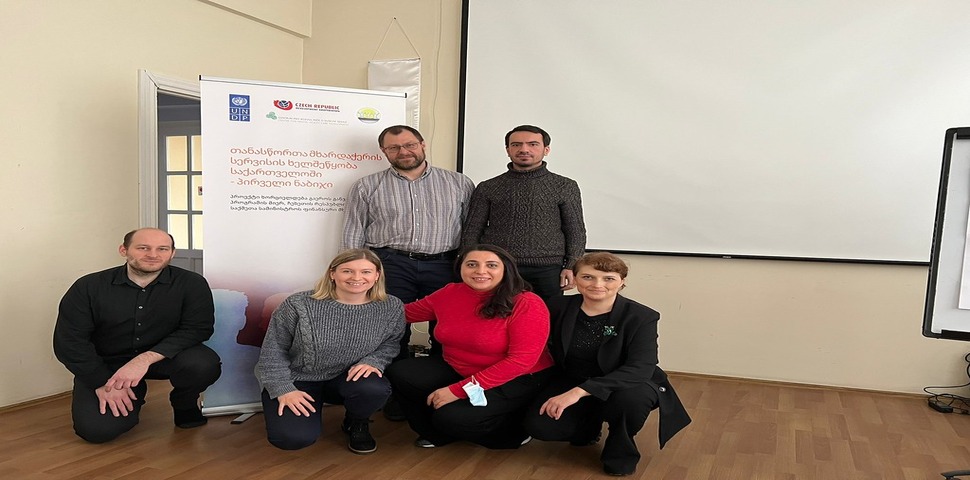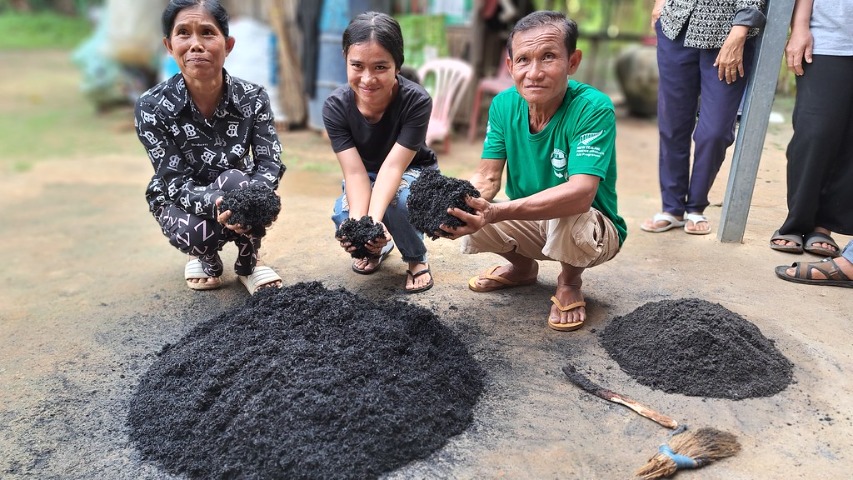An interview with Mr. Patrick Francis Kapila from the Czech University of Chemistry and Technology in Prague.
Within the Czech-UNDP Partnership modality Challenge Fund, University of Chemistry and Technology (VSCHT) in Prague implements together with their local partner Hysper Enterprise project of Biogas production and by-product utilization. The digestate, which is a biogas production by-product, is fertilizer that contains all nutrients and micronutrients necessary for modern farming. The projected use of the digestate will minimize the land degrading Nomadic farming that is being practiced in most rural areas in Zambia.
Today project innovator Mr. Kapila will talk about his experience from Zambia and the ways Biogas can support sustainable management of natural resources.
VSCHT had previously implemented a project in Moldova, but this is a first project in Zambia. Could you please briefly explain what is your project about?
The BIOGAS FOR SUSTAINABLE LIVELIHOODS AND GREEN YOUTH ENTREPRENEURSHIP PROJECT is championed by a youth organisation called HYSPER Youth Enterprise, our Local Partner. The University of Chemistry and Technology Prague (UCT) – School of Business is the Contractor.
The goal of this project is to address energy and fertilizer needs for rural communities and promote better livelihoods through youth entrepreneurships in Zambia. It is meant to help in mitigating land degradation and deforestation by addressing their causes.
How?
i. through the provision of affordable slurry based organic fertilizers to poor rural farmers and renewable energy in the form of biogas; and enhancing youth and village sustainable start-ups for better livelihoods.
ii. the project envisages achieving the aforementioned objectives through:
– the construction and installations of a bio-digester,
– inception of sustainable agricultural practices, developing biogas
generation by-products and their respective market linkages.
iii. it also includes the setting up of pig production and the value addition abattoir processing as the employment creation driver and the source of funds for replication to community.
As a university entity, how did you find out about the opportunity to apply for Challenge Fund and how was the process of applying?
There was an invitation that came from Czech – UNDP Partnership in Istanbul titled “How to submit Challenge Fund application”. I registered for the ZOOM meeting. I attended the meeting and decided to apply.
The process was overall very smooth mainly because our understanding of Zambia’s SDGs related challenges. Then I researched what is the focus of the UNDP office in Zambia and what solutions are needed and I came up with an appropriate topic. Filling in the application itself was then very straightforward.
You have already travelled to Zambia to meet with local partners and kick-off the project. What do you think will be the main challenges of implementing the project in Zambia and how do you plan to overcome them?
The main challenge is the distance to the project site given the construction demands of the project. We will ensure continuity on the works through:
- Consolidating an onsite team made up youths that we have in the management-training programme. We are inculcating in them the understanding that this is a job. It is what they wake up for and what they look forward to doing the following day. The alternative to this is unemployment.
- Scheduling weekly meetings. This should also help to ensure continuity in the construction works.
The other challenge is in the management of the local expenditure. Securing receipts and building the culture of planned outflow of funds and minimizing or eradicating adhoc fund use is a challenge. Transport tickets/receipts are non-existent at local transport level. To get round this problem, we have been working on various templates that can prove business movements.
What surprised you in a positive or negative way?
What negatively surprised me was when it downed on me during the discussion session of the project launch that Biogas is still perceived as an end in itself. Our perception is different. We see Biogas as an impetus to a multi-solution provider. UCT and HYSPER have conceptualised it as the 4Es namely; Energy provider, Environment protector, Entrepreneurship and Employment creator.
The positive take home message was the admirable rapport that the University of Zambia has with its graduates who are in the leadership of HYSPER. This young organisation was also able to get the buy-in from stakeholder institutions – the Ministry of Energy, Ministry of Small and Medium scale enterprise and Ministry of Agriculture.
What is the main motivation for local partner/local people to join the project?
Entrepreneurship and Employment (job opportunities), and their realization of the negative impacts that charcoal trading and shifting cultivation is having on the environment.
What is your plan to ensure that project stays sustainable after the end of the Challenge Fund award?
UCT is building a business model with Hysper trainees who will continue managing the project. UCT will also be available for consultation and guidance post project implementation period. We are also, as we go, engaging the University of Zambia and Natural Resources College to actively utilise the facility for student and postgraduate research.
The project itself is designed to generate resources for sustainability and replication.
The post implementation management side is where we see the challenge It is to do with the mind-set and how to uphold common interest.
What is your main advice to anybody who is considering to apply for a Challenge Fund in Zambia?
To familiarise themselves with the Zambia national development plans (both past and current) in order to understand the direction that the country is taking on development issues; and the Czech National Report on the Implementation of the 2030 Agenda for Sustainable Development Goals. I would also recommend to go through the activities of Czech development agency and Czech-UNDP partnerships.
About the Challenge Fund
Biogas project in Zambia is a part of the Challenge Fund – Czech Solutions for SDGs. Through the Challenge Fund, the Czech-UNDP Partnership for SDGs brings innovative solutions from the Czech Republic’s private sector, NGOs, universities, state institutions, research centers and individuals to tackle specific developmental challenges in the priority countries. The implementation of Challenge Fund projects is financially supported by the Ministry of Foreign Affairs of the Czech Republic.








